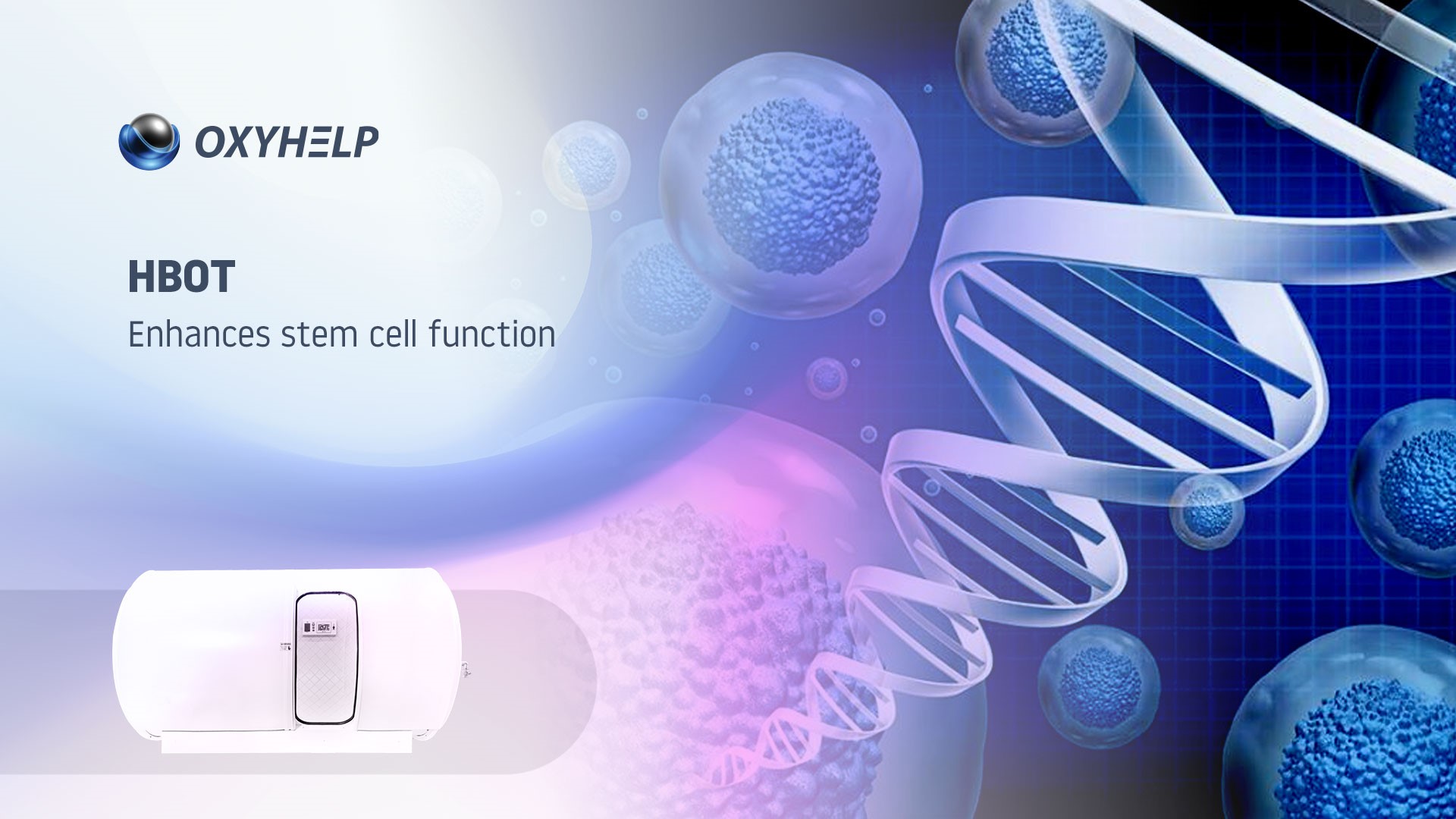
The primary concept of HBOT is in its ability to saturate the body with oxygen levels that it can handle under pressure. This process deeply affects stem cells which are the basis for all cells, in our bodies.
How HBOT enhances stem cell function
- Increased Stem Cell Proliferation; Hyperbaric oxygen therapy (HBOT) stimulates the production and release of stem cells, which enhances the bodys natural healing processes.
- Improved Tissue Regeneration; This therapy supports the regeneration of damaged tissues by promoting the activity of stem cells.
- Enhanced Healing of Chronic Wounds; HBOT accelerates the healing process of wounds by activating stem cells offering benefits to patients with conditions such, as diabetes.
- Accelerated Recovery Post Injury; The activation of stem cells through HBOT makes it a valuable tool in speeding up recovery from injuries.
- Potential for Neurological Repair; Recent studies suggest that HBOT may have potential, in aiding repair through its ability to activate stem cells.
HBOT: A catalyst for regenerative Medicine
The use of oxygen therapy (HBOT), in medicine goes beyond conventional healing methods. By stimulating the activation of stem cells HBOT presents opportunities for addressing conditions, including traumatic injuries and degenerative diseases. Previously limited to treating decompression sickness and promoting wound healing this treatment has now emerged as a cutting edge approach in advancements providing renewed optimism, for rejuvenation and tissue restoration.
To achieve the outcomes it is important to incorporate HBOT as part of a treatment strategy. It is crucial to customize the HBOT sessions based on each patients requirements taking into account factors such, as the nature of the injury and their overall well being. This approach allows us to maximize the advantages of this therapy.
For more detailed information on the role of hyperbaric oxygen chambers in stem cell activation and regenerative medicine, NCBI.nim.nih.gov offers extensive insights and resources on this topic.
Expanding the horizons of HBOT in medical science
The field of science is constantly advancing in its exploration of Hyperbaric Oxygen Therapy (HBOT) especially when it comes to its use in activating stem cells and promoting tissue regeneration. This innovative approach, which harnesses the environment of hyperbaric oxygen chambers is not just a treatment; it has become a fundamental element, in regenerative medicine. HBOTs ability to boost stem cell growth and facilitate tissue repair is opening up possibilities for the treatment of medical conditions ranging from persistent wounds, to neurological disorders.
HBOT’s role in chronic disease management
HBOT, in medicine holds promise for managing chronic diseases. For instance conditions like diabetes that can result in complications such as healing wounds can greatly benefit from the improved healing abilities triggered by HBOT induced activation of stem cells. This therapy brings a glimmer of hope to patients who have faced challenges, with the healing processes linked to conditions.
The mechanism of cellular renewal through HBOT
- Oxygen plays a role, in promoting healing within the body by stimulating its natural healing processes at a level especially when used in HBOT chambers.
- HBOT therapy aids in the rejuvenation of damaged tissues by boosting the activity of stem cells leading to more healing.
- In addition to its benefits HBOT has been found to reduce inflammation, which is often a significant contributor, to chronic illnesses and injuries thus assisting in the overall healing process.
HBOT in neurological applications
The impact of HBOT, on health goes beyond just healing wounds. Scientists are today looking into how HBOT can help one recover from brain injuries and strokes since it can activate stem cells and facilitate tissue regeneration. HBOT for brain injury is part of an innovative concept that has the potential for revolutionizing treatment approaches for conditions that can be the last hope for patients when traditional treatments have been shown to have a limited effect on their conditions.
Personalizing HBOT treatments for maximum efficacy
To ensure effectiveness it is crucial to personalize HBOT treatments. By tailoring therapy to meet each patients needs, taking into account their condition, symptom severity and overall health profile we can ensure that they receive the beneficial treatment. This personalized approach plays a role in unlocking the potential of HBOT in regenerative medicine.
As research advances our understanding of how HBOT activates stem cells and facilitates renewal and tissue repair its potential becomes increasingly apparent. Ongoing studies and technological advancements are paving the way for new treatment methods in medicine using HBOT. Once considered unconventional this therapy is steadily establishing itself as a tool, in the field. It has the ability to transform lives and improve health outcomes through harnessing the power of oxygen and stem cell activation.
Comments
comments